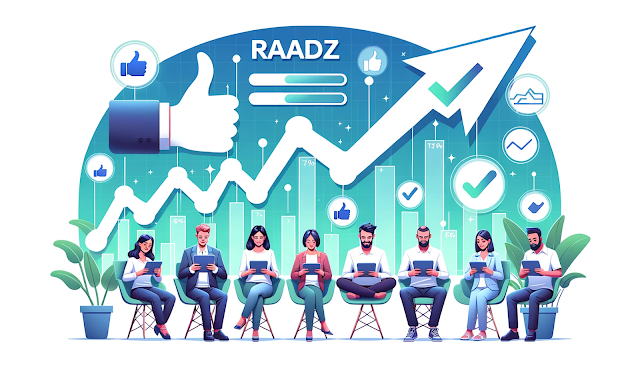Overcoming Social Desirability Bias: An Insight into RAADZ
As someone who has spent countless hours navigating the complex world of data collection, I can affirm that we're often faced with various biases that can taint our results. Social desirability bias is one such lurking monster. It's a distortion caused when people respond to surveys with answers they believe will be seen positively by others. This distortion can skew data, leading to conclusions that are more reflective of societal expectations than of the truth. However, our brainchild, RAADZ, is pioneering a fresh approach to tackling this bias in survey responses.
Social desirability bias is deeply rooted in our inherent yearning to comply with societal norms and expectations. This compulsion often sneaks into survey responses, where people, knowingly or unknowingly, provide answers that they believe will receive social approval. This might seem benign, but it has profound implications for market research and data analysis. If responses are influenced by the wish to be socially acceptable, the resulting data fails to accurately portray the respondents' genuine thoughts and feelings.
Imagine a business surveying customers about their product. If consumers think that expressing their dislike for the product could be frowned upon, they might falsely claim to like it. This could lead the business to draw a flawed conclusion that their product is popular. This is just a glimpse of how social desirability bias can twist data and lead to misguided decisions.
RAADZ, our revolutionary survey tool, is stepping up to this challenge. We've incorporated patented technology and gamification to incentivize thoughtful and honest survey answers, leading to more accurate market research. Our unique approach to surveying tackles the problem of social desirability bias in an inventive way. Instead of soliciting respondents for their personal opinions, RAADZ prompts respondents to predict the collective answers to survey questions.
This slight shift in perspective, from an individual's personal opinion to their estimation of the average response, helps alleviate the pressure to conform to socially acceptable responses. Respondents aren't tasked with revealing their own possibly contentious opinions but rather speculating what others might think. This change in question framing significantly mitigates the social desirability bias.
What's fascinating is that even while respondents try to predict the average responses, they end up offering their own truthful opinions. This is due to a phenomenon called the false consensus effect, where people tend to believe that their beliefs, values, and habits are 'normal' and widely shared. Therefore, when asked to predict others' thoughts, respondents tend to project their own opinions, revealing their true thoughts and feelings.
Our innovative approach also keeps respondents engaged. The gamification aspect of RAADZ transforms the mundane task of completing a survey into an intriguing challenge. Respondents are ranked based on the accuracy of their answers and can earn rewards based on their standing. This extra layer of motivation and competition, absent in traditional surveys, leads to higher response rates and more thoughtful, careful answers.
Furthermore, our approach alleviates the fear of potential backlash for controversial opinions. Respondents are more likely to provide honest responses when they know their answers are judged on their predictive accuracy rather than their personal beliefs. This fosters a healthier survey environment, encouraging open and honest exchanges of opinions.
To sum up, our innovative approach offers a fresh perspective on tackling social desirability bias. By modifying the question format and adding gamification elements, we encourage respondents to be more genuine in their responses.
In the grand scheme of things, overcoming social desirability bias is just one piece of the puzzle. But it's a significant piece, and one that we, at RAADZ, have shown is attainable. It serves as a reminder that with innovation, insight, and a readiness to challenge the status quo, we can continue to refine the tools we use to comprehend ourselves and the world around us. The future of surveys is thrilling, and with tools like RAADZ, we're already catching a glimpse of its potential.
#SocialDesirabilityBias #MarketResearch #DataAnalysis #SurveyMethods #Innovation




Comments
Post a Comment